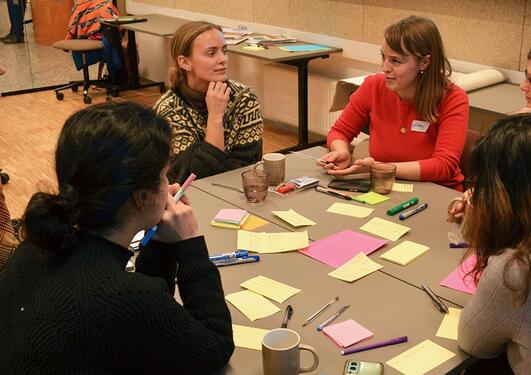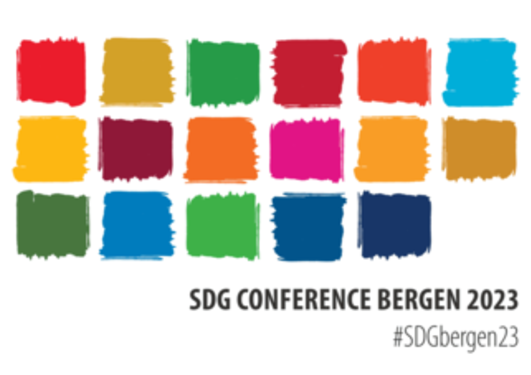Day Zero: Future Visions For Nature Workshop
February 7th the Centre for Sustainable Area Management (CeSAM) and the UNESCO Chair on Sustainable Heritage and Environmental Management hosted a student work shop during Day Zero of the 2024 Sustainable Developmental Goals (SDG) Conference.

Main content
After the success of hosting this Youth Visions of Nature workshop in December, members of CeSAM and the UNESCO Chair wanted to recreate a similar workshop during Day Zero of the SDG conference. The goal of the workshop was the same as the previous one: to envision possible positive futures for nature, and then discuss how we might reimagine study programs and educational activities at universities to support developments towards those visions. To help us imagine these futures, the workshop hosts used the Nature Futures Framework (NFF), developed by the Intergovernmental Science-Policy Platform on Biodiversity and Ecosystem Services (IPBES). NFF is a flexible tool to support the development of scenarios and models of desirable futures for people, nature, and planet.
The main difference between the previous workshop and the Day Zero workshop was that the entire SDG conference is hosted as a digital event online. For a type of workshop that relies heavily on participants sharing their thoughts on sticky notes, and then grouping them according to theme and category, the workshop hosts had to be creative with the online format. Digital live boards were used, where everyone could contribute with notes and ideas at the same time, while chatting in the meeting call simultaneously.
Although it was hard to replicate the same kind of interactions and connections made at an in-person workshop online, the online format worked very well. The participants were split into smaller groups, and they gave relatively diverse future visions, and ideas of how to change higher education to reach these visions. The online format also allows for participants from all over the world to join, which of course enriches the workshop with more diverse perspectives and backgrounds.
The outcome of this workshop will be reported together with the outcome of the Youth Visions of Nature workshop.

